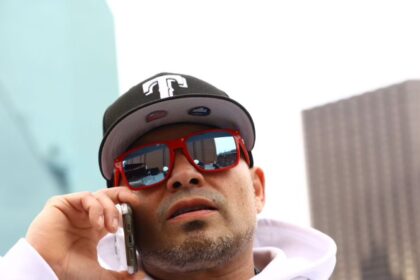The Dilemma of Rookie Quarterbacks: To Start or Wait?
During March’s league meetings, reporters huddled around Sean Payton, one of football’s quarterback philosopher kings.
Between questions lobbed in his direction and with the upcoming NFL Draft a primary focus, the Denver Broncos head coach shared what would later become more than a passing thought about rookie quarterbacks.
“There’s a topic that I see and read about sometimes, and you guys would know this,” Payton said inside a ballroom at the swanky Orlando Ritz-Carlton. “Is it better to sit behind a starter or get thrown into a fire?”
Payton highlighted the Green Bay Packers’ lineage of Brett Favre, Aaron Rodgers, and Jordan Love and the benefits of the multiyear education each replacement received by watching a longtime starter still slinging at the peak of his powers.
“That’s invaluable,” Payton said. “And yet, there are times when you don’t have that luxury.”
For those aware of history, the query may have sounded purely hypothetical. Denver’s last rookie Week 1 starting quarterback was John Elway in 1983. Payton, former coach of the New Orleans Saints, had never opened a regular season with a first-year passer under center.
One month later, with a roster lacking an obvious starter after releasing Russell Wilson, a Super Bowl champion but a poor fit for Payton’s scheme, the Broncos selected Oregon’s Bo Nix with the 12th overall pick. Payton’s hypothetical about the start-sit debate, one every franchise has faced over the decades, had become reality.
Denver drafting Nix meant six franchises in 2024 put themselves into this situation. Three plan to start their rookies in Week 1: the Chicago Bears and Washington Commanders, who drafted Heisman Trophy winners Caleb Williams and Jayden Daniels, respectively, and the Broncos with Nix.
The duo selected with the first and second overall picks by organizations long searching for an answer at the sport’s most valued position were always considered part of this club. Nix’s summer work turned him into a potential member. Minnesota Vikings rookie J.J. McCarthy’s chances ended when he suffered a season-ending knee injury. The Patriots’ Drake Maye, the No. 3 pick, may quickly ascend New England’s quarterback depth chart.
Tennessee Titans first-time head coach Brian Callahan is among those who believe the sooner incoming quarterbacks start, the better.
“That’s the one thing I’ve always believed,” said the ex-Cincinnati Bengals offensive coordinator who taught rookie day-one starter Joe Burrow. “The idea that quarterbacks learn more by sitting? I don’t subscribe to that.”
Organizational details are rarely the same, yet this highly scrutinized choice is always a defining moment.
Three-time Super Bowl-winning coach Andy Reid has tackled this matter before. The first start for Donovan McNabb, the Philadelphia Eagles’ No. 2 overall selection in the 1999 draft, came in Week 10. With Kansas City, Reid kept 2017 rookie Patrick Mahomes as Alex Smith’s backup except for an essentially meaningless Week 16 start despite the Chiefs boldly trading up from pick 27 to 10.
“The toughest thing for these young guys is the blitz game and the different coverages and disguises they’re coming into,” Reid said. “I believe in giving (the rookies) an opportunity, if you can, to see those things before you throw them in.”
With three titles in five Super Bowl appearances, plus other trips to the conference championship game, one can say waiting worked for Reid. However …
“I think there’s no substitute for playing,” Callahan said. “There’s no easier way to learn lessons than going through them physically.”









